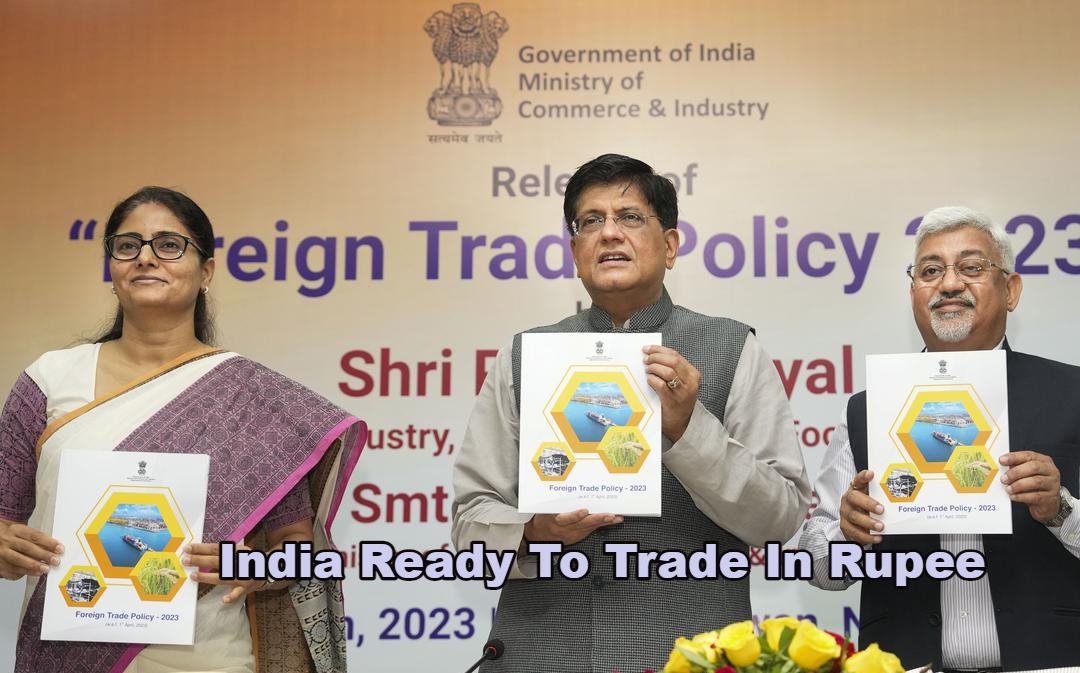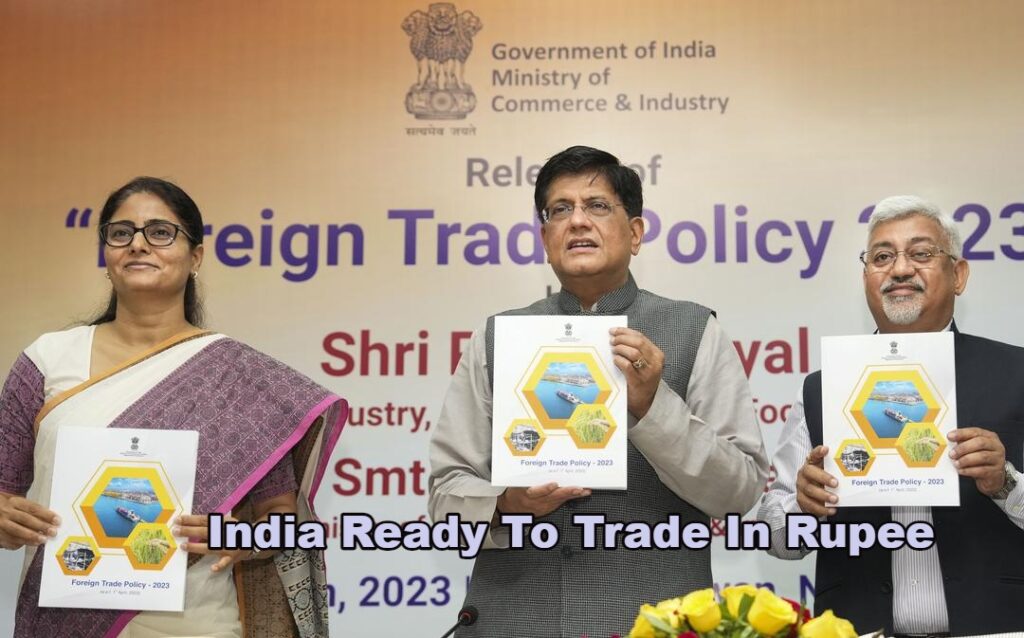News
India Ready To Trade In Rupee With Countries Facing Currency Crises
Published
1 year agoon

The government is concentrating on bolstering the rupee payment system, Commerce Secretary Sunil Barthwal said after the release of the Foreign Trade Policy (FTP) 2023.
Sunil Barthwal, India’s secretary of commerce, stated today that his country is willing to conduct business in rupees with nations that are experiencing currency crises or a shortage of dollars.
The Foreign Trade Policy (FTP) 2023, which aims to increase India’s exports to $2 trillion by 2030, was unveiled after the secretary of commerce spoke. He also mentioned that the government is concentrating on bolstering the rupee payment system.In order to make the Indian rupee (INR) a universal currency, changes have been made to the FTP that now permit settlement of international trade in INR.
Read Also:- Gujarat’s Ahmedabad, eight people were arrested for “objectionable posters” against the prime minister .
In his remarks to the audience, Commerce and Industry Minister Piyush Goyal exuded assurance that the $2 trillion export goal by 2030 would be attained.He emphasised that no industry could succeed solely through subsidies or other aids.
According to Piyush Goyal, the nation’s perspective on exports will change over the next few days.Santosh Sarangi, Director General of Foreign Trade (DGFT), announced FTP 2023 to provide policy continuity and a responsive framework.
The FTP has also introduced an amnesty programme for Advance Authorization and EPCG authorisation holders to settle a single export obligation default.
On payment of all customs duties that were exempted in proportion to unfulfilled EO and interest at the rate of 100% of such duties exempted, the authorisation holder may regularise all pending cases of the default in meeting export obligations (EO) of the authorizations mentioned.On the portion of Additional Customs Duty and Special Additional Customs Duty, however, no interest is due.
For ease of understanding and compliance by industry, the policy for exporting dual-use items under Special Chemicals, Organisms, Materials, Equipment and Technologies (SCOMET) has been centralised in one location.
The SCOMET policy places a strong emphasis on India’s export control in accordance with its obligations under various export control regimes (the Wassenaar arrangement, the Australia group, and the Missile Technology Control Regime) to regulate the trade in sensitive/dual-use products and technology.

Credent TV Editorial Team
